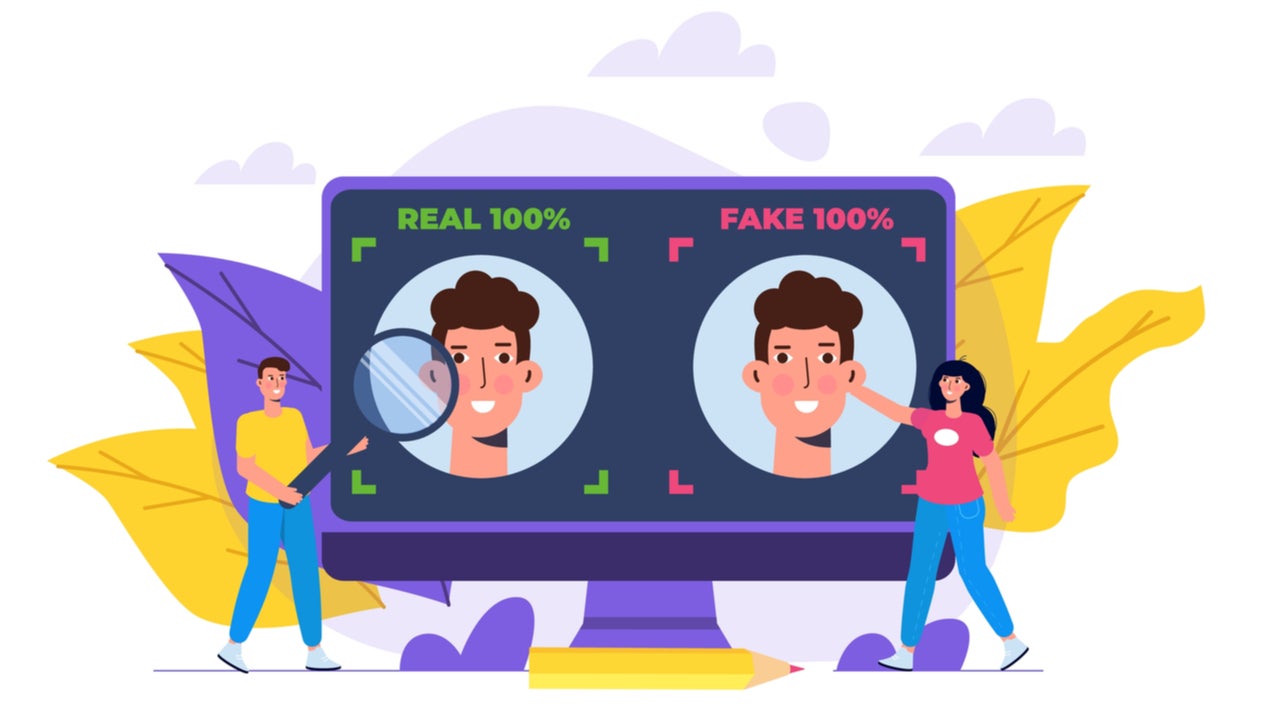
High-quality deepfakes are infiltrating social media apps like TikTok and Facebook, which have millions of users globally. A deepfake is an unauthorized digital twin of an individual created by a (often) malicious actor. They are created through deep learning AI technology, which replaces a person’s likeness with a digital replica. It can simulate speech, actions, and emotions.
Most deepfakes consist of superimposing a celebrity’s head onto actors in pornographic videos. Using this technology, you can make anyone do anything and share the videos. If you can make anything look real in a virtual space, like in the nascent metaverse for example, then deciding what is real will become near impossible.
Fake celebrities on social media
A Tik Tok account claiming to be set up by Robert Pattinson amassed over 600,000 followers a few weeks after being set up in late March 2022. This struck many people as odd, as the Hollywood star had famously stated that he did not want to take part in social media in 2019. Sure enough, the videos were deepfakes and the account has since been deleted.
Apparently, the ears gave it away. The facial modeling software used to create these deepfakes often exclude ear shape, as this is unique to the individual and hard to replicate—sort of like how certain artists avoid painting hands due to the level of complexity.
Robert Pattinson is not the only celebrity to have been replicated using deepfake technology on social media. A Tik Tok account with the handle @deeptomcruise, which produces videos impersonating the Mission Impossible actor, has 3.4 million followers. There was also a deep fake of the Queen’s Speech in December 2020.
The number of deepfakes has increased over the past few years. According to a Sensity report published in 2020, the number of expertly crafted deepfakes has been doubling every six months since records began in 2018, with no signs of slowing.
How well do you really know your competitors?
Access the most comprehensive Company Profiles on the market, powered by GlobalData. Save hours of research. Gain competitive edge.

Thank you!
Your download email will arrive shortly
Not ready to buy yet? Download a free sample
We are confident about the unique quality of our Company Profiles. However, we want you to make the most beneficial decision for your business, so we offer a free sample that you can download by submitting the below form
By GlobalDataFacebook recognizes the increasing threat they pose to its users and seeks to protect itself against this onslaught. As a way of teaching its AI software how to spot manipulated videos, the social media titan launched a database of 100,000 deepfakes in 2020. It detected the fakes with 65% percent accuracy.
How will people protect themselves against deepfakes?
Processing fluency relates to people’s instinct to believe something is true if it looks and sounds right. It suggests many people will be inclined to believe videos are real if they accurately portray an individual and their actions. In the future, it is likely that people will need to be properly trained in how to identify a deepfake. Regulators will also need to be able to effectively identify these threats to help protect people in the online space.
There are concerns over the use of deepfakes during political campaigns. Deepfakes of Barack Obama and Boris Johnson were previously created by researchers who were testing visual imaging technology. This could have severe ramifications in the age of ‘fake news’ and disinformation being disseminated online.
Nina Schick, an American broadcaster who has investigated deepfakes, said it best when she claimed that deepfakes will form part of the “corrosion of our information ecosystem”. Many consumers will find it harder to identify trustworthy sources of information online. The possibility of hyper-realistic deepfakes becoming common practice should send a shiver down any internet user’s spine. Consumers are set to enter a nascent version of the metaverse in the not-too-distant future and will have to tread lightly to avoid falling victim to a convincing deepfake. Soon, even the ears will not give it away.




Related Company Profiles
TikTok